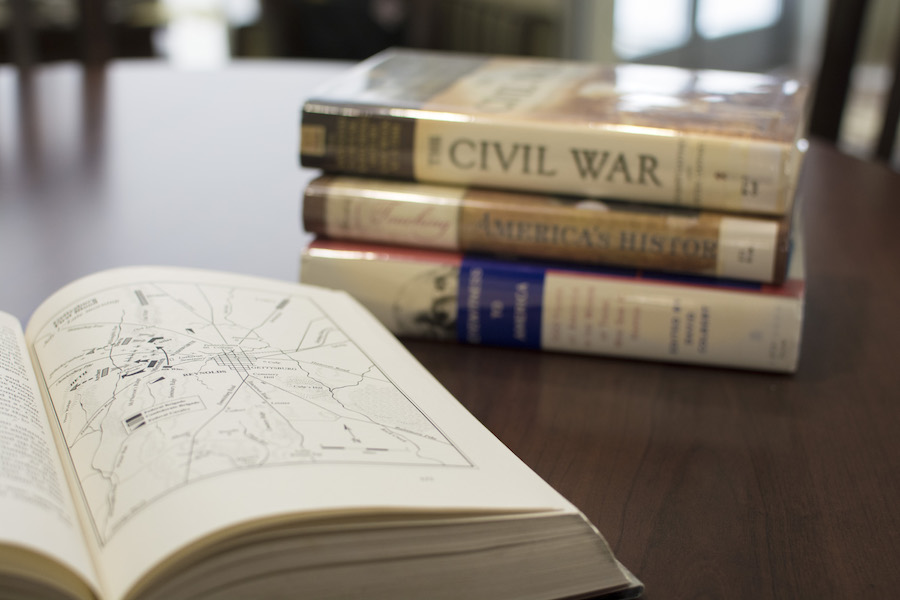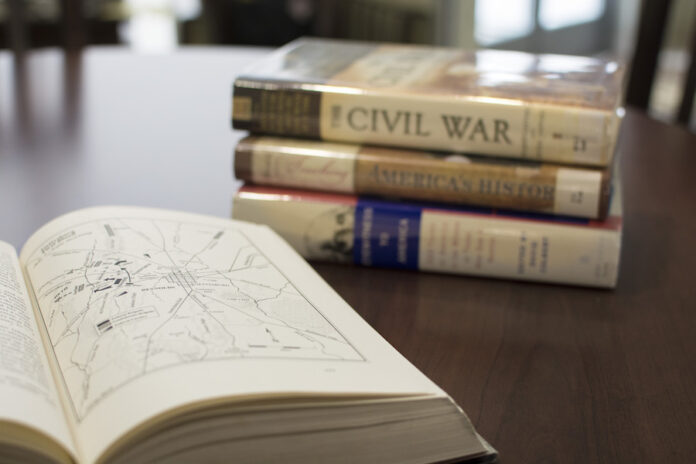
Rethinking how we interpret the past
 Do you ever look into the past and wonder why you consider a certain historical actor a hero or a villain? Or how you may think positively of someone you thought was benevolent, while others may vilify the person for the very same actions? Now ask yourself: Who taught you this? What made you think this way? What politician, news article or meme put those arguments into your mind? Have you thought about what others would think of you if you thought this way?
Do you ever look into the past and wonder why you consider a certain historical actor a hero or a villain? Or how you may think positively of someone you thought was benevolent, while others may vilify the person for the very same actions? Now ask yourself: Who taught you this? What made you think this way? What politician, news article or meme put those arguments into your mind? Have you thought about what others would think of you if you thought this way?
History isn’t always between just good and evil. Although a handful of heroes and villains lie prominently in our memory, there are many famous people throughout history for whom the line between good and evil is muddled. But we often cling to extreme classifications of historical figures because they suit the narrative we’ve been given throughout our lives. We grow up in our own thought enclaves, in environments of entrenched, established “truths” that we often don’t question since they’re the only arguments we have heard on the subject. So we’re never really obliged or given the opportunity to truly play devil’s advocate and find evidence to refute them. We hold these established beliefs very tightly, so our minds naturally shut off counterarguments — deeming them utterly foolish to even be stated.
That’s how our history is taught, anyway. You’re only given “selected” highlights of a particular area or time period. The next time you step into a history class, think about how much information on a time period you actually go over. The rest of the information is either glossed over, hidden, forgotten or shrouded in complete mystery. That’s how history is created or destroyed. You can’t really show everything, but you can show the parts you want your audience to see. That’s why it’s so easy to manipulate people via history. If people can be tricked into believing what they’re told at face value, then it shouldn’t be hard to turn something like the Nazi gas chambers, as horrific as they were, into a mere “detail” in history, as French politician Jean-Marie Le Pen has so controversially stated.
In the German film “Goodbye, Lenin,” the protagonist’s mother falls into a coma, missing the collapse of the Berlin Wall. Attempting to prevent his mother from succumbing to the culture shock that may cause a second heart attack, he recreates his mother’s life by creating fake news reports that make life appear the same as it was in the old East Germany. If the protagonist could refashion the collapse of the Berlin Wall into the collapse of West Germany and the opening of the East German borders for refugees fleeing capitalism, why couldn’t our historians do the same thing with our past? Why couldn’t they rewrite every single historical fact if we had a populace that would believe it? With today’s technology, it really isn’t hard to combine semi-truths to construct a believable, yet false, narrative. After all, it’s not impossible to find tidbits of good deeds by Adolf Hitler and stitch them together to fashion a story about how benevolent the Nazi leader was.
Everyone interprets historical figures differently. The issue is that we tend to believe what we’re told — and don’t question it. If we’re ever going to deconstruct falsehoods and expand — rather than destroy — our understanding of the past, we must change the way we interpret history. We sometimes have to admit to ourselves that, just as “Hamlet” was morally ambiguous, so are most historical people and events. This is not a rejection of all established historical truths, but rather a wary skepticism of what you’ve been told. What you originally viewed as obviously correct may, upon further investigation, be hard to swallow. Once we accept that history, like arguments, is not just two-sided, then we can truly ask ourselves what’s a better way to interpret our past. If we keep repeating past mistakes, doesn’t it show that we’re forgetting or misinterpreting our history, causing us to travel down the same road to destruction?
Written by: Justin Chau — jtchau@ucdavis.edu
Disclaimer: The views and opinions expressed by individual columnists belong to the columnists alone and do not necessarily indicate the views and opinions held by The California Aggie.




